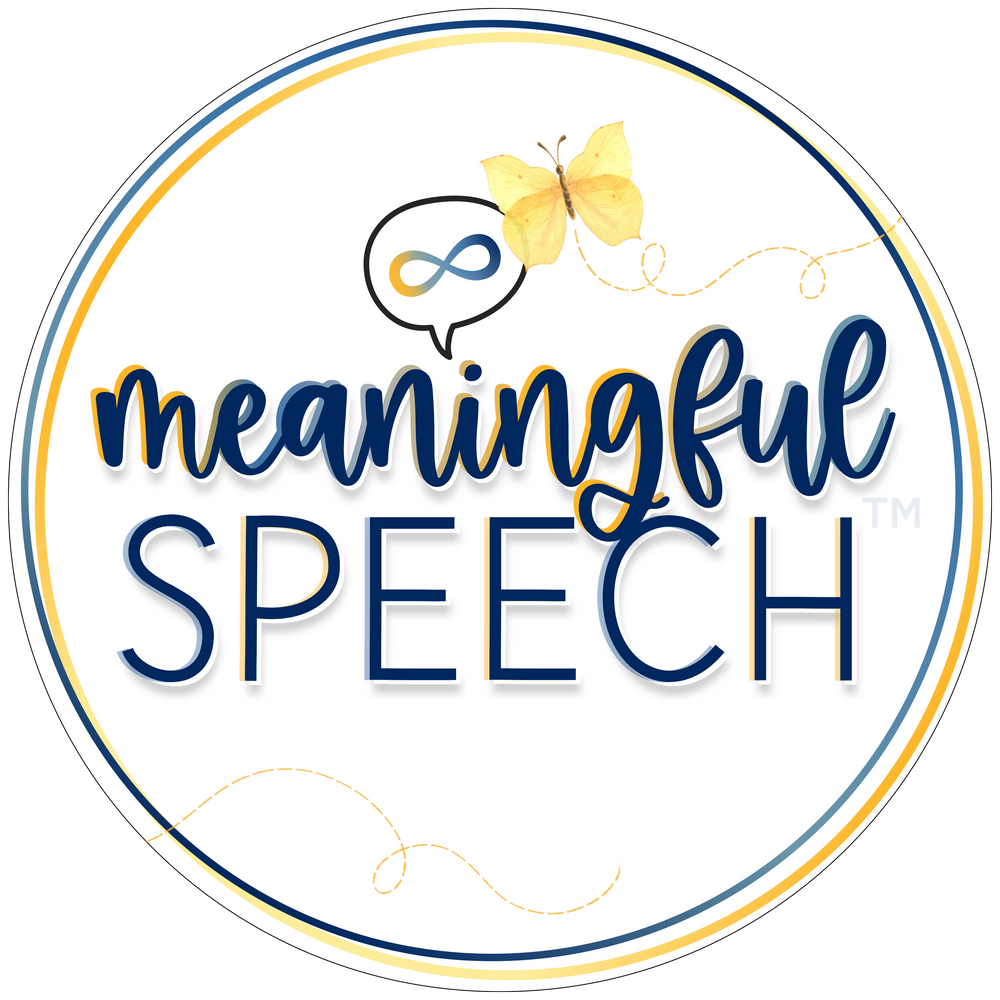Prompt Dependence & Gestalt Language Processing
Sep 20, 2023
You may be supporting a child or client who is a gestalt language processor and wondering why you don’t hear them using delayed echolalia. These children may be using immediate echolalia, giving rote responses or not initiating communication spontaneously at all. You might feel stuck on why this is happening and how you can support them. You may not be hearing delayed echolalia due to prompt dependence.
What does prompt dependence look like?
A child who is prompt dependent waits for a verbal, visual or auditory cue before initiating communication. Many children become prompt dependent due to a history of compliance based or "traditional" tabletop or drill style therapy. These children struggle with communicating spontaneous language of any kind. We may not even hear gestalts from children who are gestalt language processors. We may hear a lot of immediate echolalia and rote responses.
What is immediate echolalia?
Immediate echolalia refers to utterances that are produced or echoed immediately after they’re heard. They might echo the whole phrase, or part of the phrase. Immediate echolalia has a variety of purposes.
- Example #1:
- Adult: “What’s that?”
- Child: *immediately repeats* “What’s that?”
- Example #2:
- Adult: “Want some juice?”
- Child: “some juice”
What are rote/taught responses?
Taught phrases are drilled, memorized or practiced as a result of well-meaning routines, compliance-based therapies, or an emphasis on language strategies for analytic language processors. Some examples of these might be the use of carrier phrases or sentence strips, rehearsed routines, flash cards, drill and practice, and labeling. While some of these strategies may be appropriate for analytic language processors, they do not help support gestalt language processors to get to self-generated, original/flexible language. Here are some examples of what these might look like:
- Result of drill and practice:
Adult: “ABCD”... “Your turn. ABCD”
Child: ABCD - Memorized from well-meaning routines that are rehearsed over and over.
Adult: “Who's ready for school?!’... “I am!’
Child: “I am!” *anytime the parent asks this question* - Result of compliance-based therapies or an emphasis on strategies for analytic language processors.
- Example: *Focus on labeling* Note: labeling is not appropriate for gestalt language processors that are in the early stages of gestalt language development (Stages 1-2). This is a strategy meant to build vocabulary, which is not our goal for gestalt language processors. Our goal in these early stages is to provide them with more gestalts.
Adult: “What’s that? It’s a ball!”
Child: “Ball” - Sentence strips or Carrier Phrases
An adult uses a cloze procedure strategy where the words in the phrase are the same, except for the ending. The child finishes the rote phrase with a word of their own. Some examples:
I want _____.
I need _____.
I see ______.
How can I support a gestalt language processor who is prompt dependent?
- Our #1 tip when it comes to supporting a gestalt language processor who is prompt dependent is to try silence! This means eliminating all adult language for a concentrated period of time (e.g. one whole therapy session).
- We recommend educating parents and other professionals on the why behind your silence. This helps them understand how powerful silence can be, why they might consider using it at times, and also takes the pressure off of you as a clinician to be constantly filling the silence.
- Allow the child to lead your session (child-led therapy) while you stay quiet and just listen!
- Listen for any spontaneous language. It may take several sessions, especially for older children who have had years of prompt dependence.
- Acknowledge all spontaneous language you hear. You can do this by nodding, smiling, repeating it back, or saying “yea” or “okay”.
- Record any language you hear and analyze these language samples using the Natural Language Acquisition Framework & scoring (Blanc, 2012).
Want to learn more in-depth information about how to support gestalt language processors?
- Consider taking the Meaningful Speech course to learn more about how your child or client processes language, how you can help support them from echolalia to self-generated (original flexible) language, child-led therapy, and neurodiversity-affirming practices.
- Consider taking our AAC + Gestalt Language Processing course. It will teach you how to identify, evaluate and support gestalt language processors who use AAC or who you think might benefit from AAC.
- Consider purchasing our GLP Handbook for Coaching and Education. This comprehensive resource was designed by Meaningful Speech team member Katie Arnold for clinicians and parents! The GLP Handbook is filled with tools to educate about and advocate for a Gestalt Language Processor in your life (or on your caseload).
- Consider taking one of Marge Blanc’s courses on Natural Language Acquisition or purchasing her book. Both can be found on her website: www.communicationdevelopmentcenter.com.
- Look for a speech-language pathologist (SLP) who "gets it" and can help you in supporting your child's language development. Check out our world-wide registry for SLPs who understand gestalt language processing and child-led therapy.
